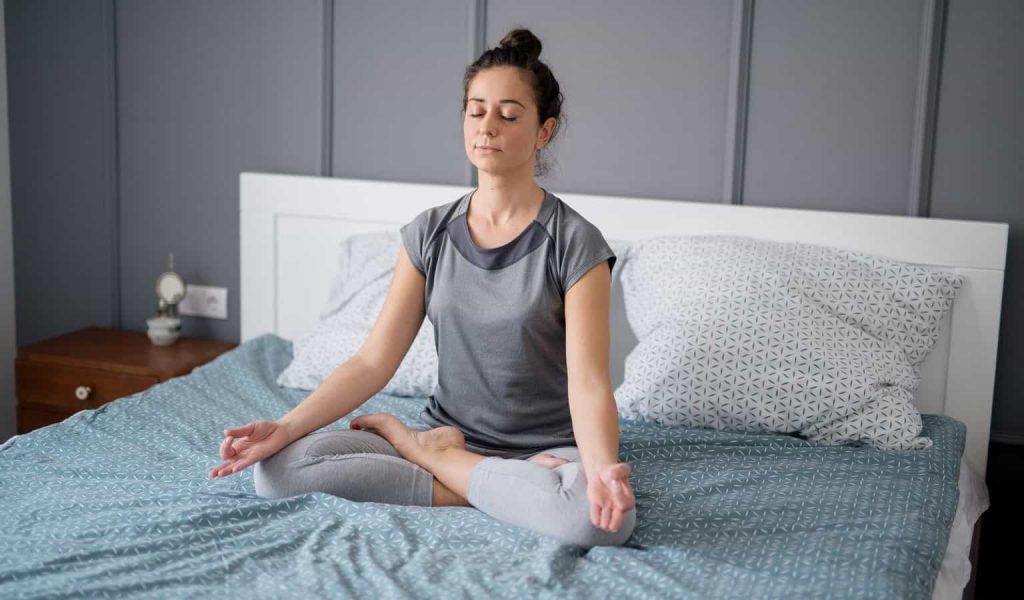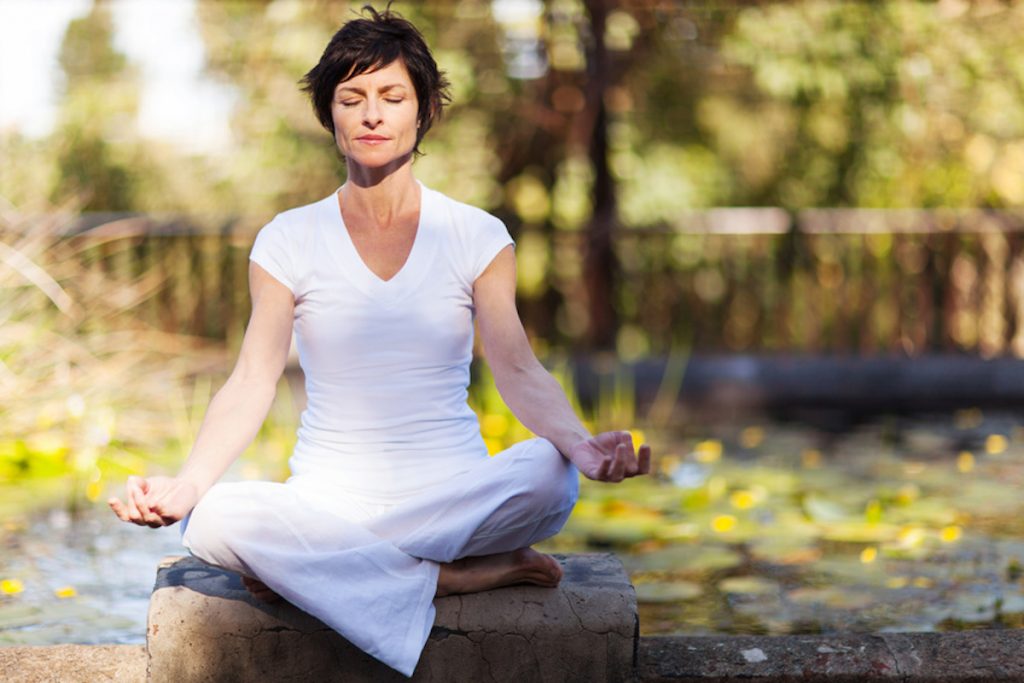
I’m constantly amazed by the amount of people who are not sleeping so well these days…the problem seems to be getting worse by the year. And even for those who seem to sleep through the night, every single one of us living in an urban environment, or spending a lot of time in front of screens is faced with the issue of our sleep quality being severely inhibited by the strain of modern living.
The issue largely stems from the fact that we are not really biologically capable of dealing with the overwhelming stimulation of such a hyper-technological age. The industrial revolution brought so many changes to our way of life that our nervous systems were already becoming overloaded several hundred years ago. It was the advent of electrification eighty eight years ago that really began the exponential spike in nervous system overload.
Having lightbulbs feels like one of the greatest innovations in human history. If we weren’t abusing the privilege that they bestow on us, it would be hard to discount the transformative effect electricity has had on our social lives and personal safety when walking the streets of whichever town or city you live in.
However, the ubiquity of artificial lighting in our homes, on our screens and in just about every corner of civilisation, means that our retina are subject to so much light stimulation. We are often going to bed with chronically overstimulated nervous systems, particularly in the hours where the sun is low or the sky is dark.
The consequence of this is that instead of going to bed relaxed and ready to descend into a full night of sleep – taking in all Non-REM and REM phases of the sleep cycle – what’s actually happening is our sleep is staying mostly shallow. We are becoming chronically lacking in the deepest phases of the sleep cycle. There are so many important functions that take place during this part of sleep that to be deficient in it has huge ramifications for our life experience. Deep sleep helps us take care of many things; research indicates that it is vital in helping the brain recover from the day and prepare for the next morning. Deep sleep helps to consolidate new memories and help keep existing ones as well as maximise our learning ability the next day. Growth hormones are also secreted to aid with the healing of muscles and any damage to tissues.
The fact that this lighting also causes us to go to bed later at night is an additional influence compromising the quality of rest we can attain. For the last 1.8 million years we humans have been on the planet, we have tended to slow down at sunset and rise before, or with, sunrise. However, since electrical lighting became ubiquitous, our bedtimes have gotten later and later and we have moved further and further from the natural biological rhythm, causing further disjointment. Slow wave sleep tends to happen in the earlier part of the night, and then REM activity tends to occur later on, so shortening the slow wave phase will have a number of unwanted consequences over the long term.
Whatever time we may finally get to bed, we may also be challenged by an abundance of ambient light creeping through our curtains throughout the night, whether it be street-lighting or, bedroom based electronics. This often exacerbates the issue and our sleep is made even more shallow by the cascade of hormones triggered by this level of ambient stimulation.
Other electromagnetic disturbances may also be compromising our sleep quality. Whether it’s the wires in your walls, the phone on silent, the TV in your bedroom or the mini-fridge in your hotel room, all of these will be emitting electromagnetic fields that if in close proximity, really won’t be helpful to the electromagnetic fields of your heart and brain. I haven’t personally come across any research that has quantified this effect, but there is no doubt the effect can be significant.
The level of ambient noise disturbance can also be quite high in many neighbourhoods and this also tends to put our nervous system on alert, as pre-historically we had to be ready to run or fight at the first hint of noise just in case it was a predator who fancied a bit of human for supper.
If there are stimulants in your system, whether it be caffeine, artificial sugar substitutes, high levels of chilli, stress chemicals such as cortisol and adrenaline (maybe from some late evening exercise) or depressants such as alcohol, there will be changes to the natural equilibrium of your nervous system which will further contribute to the mal-achievement of a hearty night’s sleep.
All of these influences combine to create a vicious cycle of less energy, more strain, more stress and therefore further conditioning of our nervous system into ever heightened chronic activation.
This is where meditation can be so useful. By giving ourselves time out each day, our systems can begin to reset themselves so that they are not permanently engaged in never ending tasks and activities. Indeed the Beeja meditation technique is so powerful at giving you deep hits of rest, you will find yourself on average 33% deeper than the deepest point in sleep and you will achieve this In less than five minutes, as opposed to having to have 6-7 hours of uninterrupted sleep to reach a level of rest that is not nearly so restorative.
It goes much, much further than this. One of the key attributes of this technique is to give each individual a sound that resonates with your nervous system so that no matter how chronic the state of overactivation is, your nervous system will immediately start calming down when you begin silently repeating your sound within the mind. This sound, or combination of phonemes to be more accurate, acts like a password which puts your body into this deep state of rest and your mind into a very powerful state of coherence. It gives you energy to start the day with, and it calms you down after a hard day at work, allowing you to ease into a wonderfully blissful night’s sleep. You quickly find yourself waking up feeling refreshed, and the added rest you gain in the meditation allows you to pay off any accumulated fatigue so that you can transition into a state of feeling more calm, and more vitality throughout the day. One becomes imbued with a level of poise that allows you to navigate your way through life in a graceful manner. It unlocks your innate potential, which, when you’re well rested and feeling healthy and alert, is significantly more than the average person is experiencing. You wake up everyday feeling like a champion, and even on those occasions when you didn’t sleep so well (late night partying or a crying child), you can do a twenty minute hit of meditation in the morning and it feels like you’ve had an extra two hours of sleep!
The meditation also reduces the amount of excess stress and anxiety hormones that may be racing around your system and keeping you awake at night and leaving you feeling exhausted through the day.
So instead of being subject to a vicious cycle of cumulatively negative influences, you have provided yourself with an antidote to 21st century life and are giving yourself something that transcends these influences and puts you in a more positive state of mind and body.
Statistically, this technique has been shown to reduce sleep disorders by 42%. Personally, it did a lot more for me, and having taught so many people with sleep issues now, we can attest that our success rates are considerably higher.
As one of the world’s foremost sleep scientists, Professor Stephen Lockley once said “the worst invention in human history is the light bulb”. He may have been being purposefully controversial in saying this, but there is a huge element of truth to it. I may not be a professor, but I’m going to add to the debate by putting forth that ‘meditation may well be the greatest invention in human history.’ Well, that and the wheel anyway…
If you’re not sleeping well, as I once wasn’t, please do consider coming along to find out more about one our free meditation talks. Or alternatively, check out our beginners meditation courses and help us help you overcome your insomnia.

The Benefits of Beeja Meditation
- Reduce stress and anxiety
- Greater clarity and calm
- Increase focus
- Enhance relationships
- Sleep better
- Feel energised



